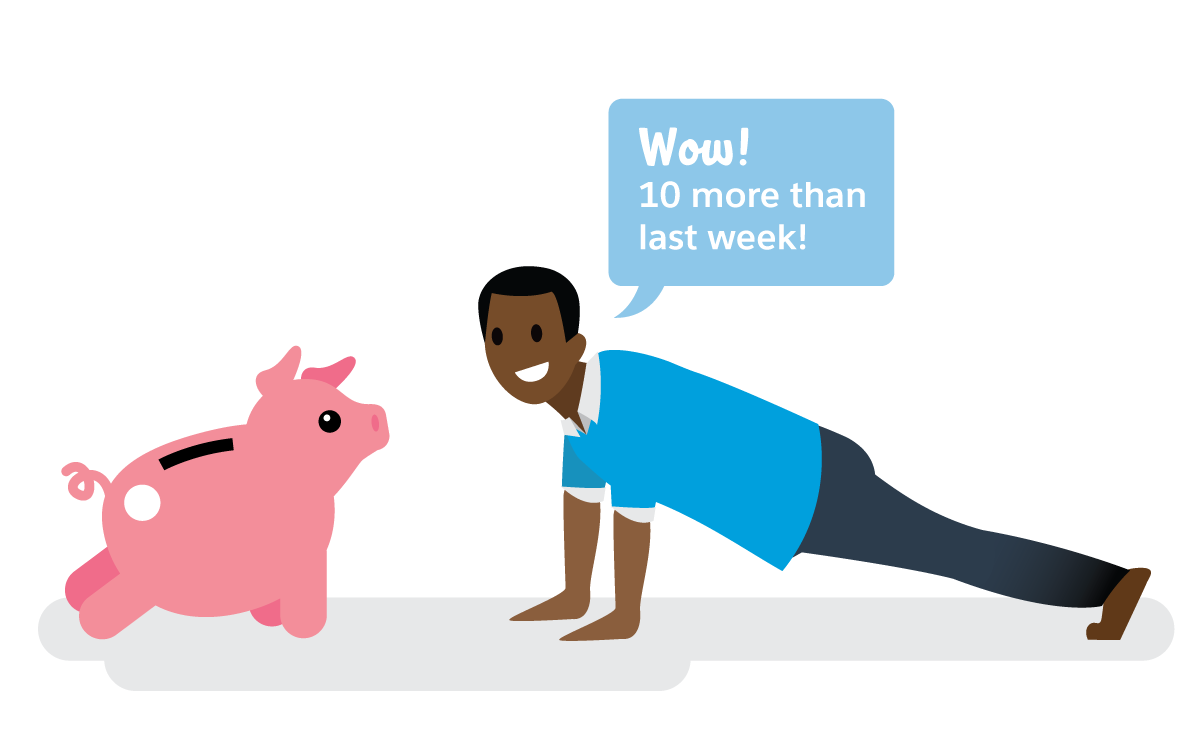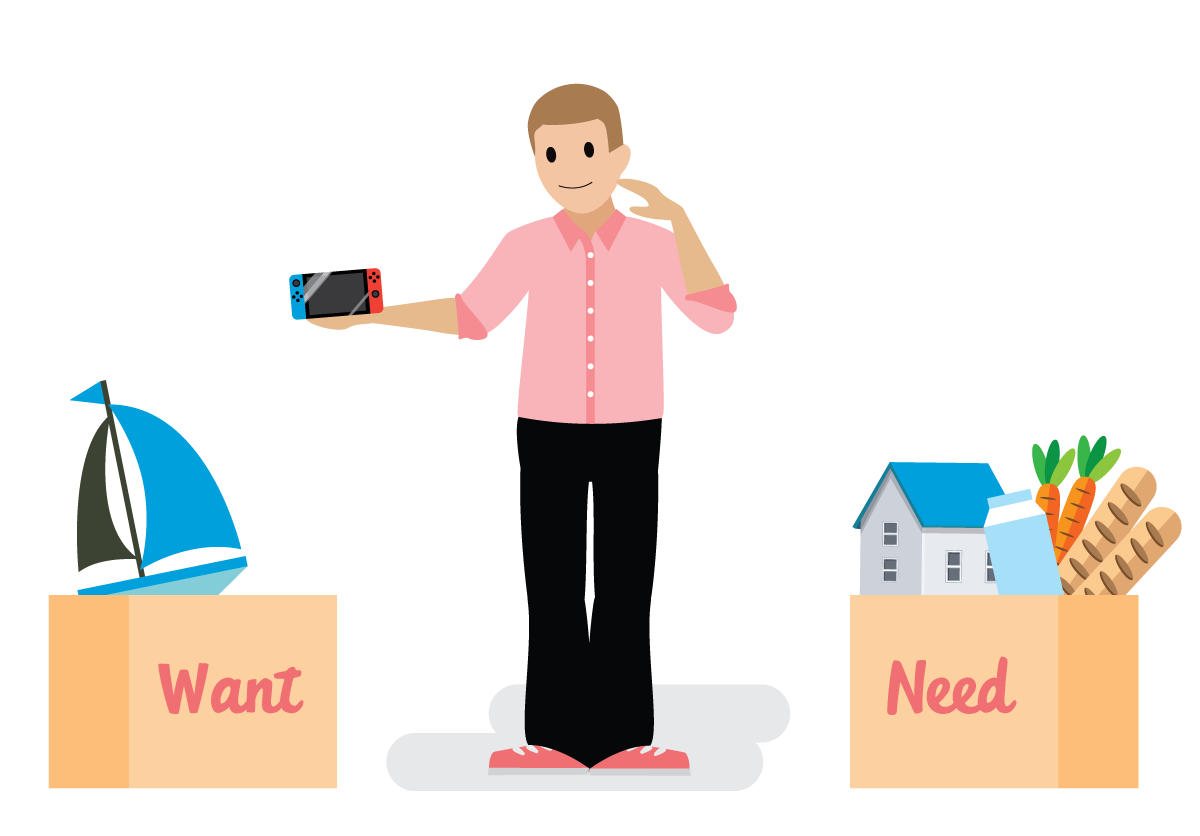Build a Better Budget
Learning Objectives
After completing this unit, you’ll be able to:
- Explain the importance of making small changes to your financial behavior.
- Identify the building blocks of financial wellbeing.
- Explain how budgeting is the foundation for financial wellbeing.
- Create your own budget.
Money matters can be complex and, at times, overwhelming. But you owe it to yourself to boost your financial knowledge. This doesn’t mean you have to become a financial expert. It means you should gain a basic level of understanding and how to apply this understanding to your life. It means you can use your knowledge to take action.
Starting Small Is Still A Good Start
Small changes can be all it takes. According to the Compound Effect, by Darren Hardy, little, everyday decisions can help you chart the path that you want and achieve your financial goals. The key is to break big concepts, such as paying down your debt, into small, achievable, actionable steps. When you do, you can create lasting change and develop healthy financial habits to improve your financial wellbeing.

Building Blocks of Financial Wellbeing
To help you identify the changes you need to make, let’s start by identifying the universal building blocks of financial wellbeing. Employee Benefits UK helps us out here.
- Budgeting and cash flow
- Debt reduction and elimination
- Emergency preparedness
- Retirement readiness
Keep in mind you can focus on one building block at a time, a few, or all of them at once. This depends on your specific financial situation. As mentioned above, the key is to start somewhere. Let’s look at each of the above building blocks in detail.
Budgeting and Cash Flow
Want to build a strong financial foundation? According to Business Insider, budgeting is key. A sensible budget is a great way to create a path to financial security.
Budgeting boils down to a simple equation.
Income - Expenses = Personal Cash Flow (money left over)
Having a positive personal cash flow, or money left over after paying your expenses, is the first goal. Easier said than done, right? Have you seen or heard the phrase, “Live within your means”? The real trick to this is to let your financial goals guide your lifestyle, not the other way around.
The Balance recommends you create your goals first. Figure out how much of your cash flow you can allot to those goals, then strategically manage your expenses to make it possible. This doesn’t mean you should stop spending your money on fun things. It just means thinking before you spend, rather than worrying about how you will pay after the fact.
Money Myth: You don’t need a budget if you can pay your bills.
Financial wellbeing is more than just your ability to pay bills. According to Forbes, planning and budgeting can help you save more and identify ways to free up your money—money you didn’t even know you had. That extra money saved can mean the freedom to make the lifestyle choices you want, plus the confidence to work toward your financial goals.
With a solid budget, you can see how you spend your money and where the potential for more cash flow is, instead of wondering where it all went.
Creating Your Budget
There is no one-size-fits-all approach to budgeting. The important thing is that you find one that works best for you.
NerdWallet mentions it can be helpful to categorize your spending by needs, wants, and future goals. The better you control your needs and wants, the more you’ll have for those future goals. Remember, these are your needs and wants.
There are several common sayings and shock tactics out there to get you worried about money. Such as if you have a $3 coffee every day, you spend more than $1,000 a year, money you can put back in your pocket if you just skip the latte. But if that morning latte or annual family trip is important to you, keep it, and spend less on something else such as downsizing that cable TV package or dining out less. Find a balance that works best for you.

No matter your budgeting strategy, here are tips that can make your budget successful.
- Try the 50/30/20 rule. 50% of your income should go to your needs, 30% to your wants, and 20% to your future self. We’re confident your future self will thank you.
- Be realistic with your spending goals. Give yourself permission to spend. If your budget is too restrictive you won’t stick with it long-term.
- Create a small budget for surprises. Unexpected expenses can come up every month. Penciling them in means they won’t be as stressful.
- Give yourself time to build the skill. Like any other skill, successful budgeting takes practice. It becomes easier over time.
Money Exercise: Here’s a tip from Mint. Before you create your budget, track your expenses for a month. Tracking your expenses in a notebook or an app will give you a clear picture of how you spend your money. You can get the details you need to put realistic numbers into your budget. When you’re ready to create your budget, check out the Resources section below for budgeting tools.
Let’s Sum It Up
Budgeting is a great way to develop a strong financial foundation. It’s important that your budget is specific to your lifestyle—your own wants, needs, and goals. Let’s build on that foundation in the next unit and explore more ways to manage your finances, including debt reduction, emergency preparedness, and saving.
Resources
- Report: Financial Literacy, Financial Education, and Downstream Financial Behaviors (Management Science)
- Book: The Compound Effect (Darren Hardy, Amazon US, purchase necessary)
- Article: The building blocks of an effective financial wellbeing strategy (employee benefits)
- Article: Pay Off Debt or Save for Retirement? Here’s Our Advice (NerdWallet)
- Article: Challenging the Myths about Financial Wellness (Forbes)
- Article: 11 Personal Finance Equations You Need to Know (Business Insider)
- Article: Basic Budgeting Tips Everyone Should Know (the balance)
- Article: Budgeting 101: How to Create a Budget (NerdWallet)
- Article and Templates: Monthly Budget Template: Track Your Spending By Month (Mint.)
- Article: 8 Best Budgeting Apps of 2019 (the balance)